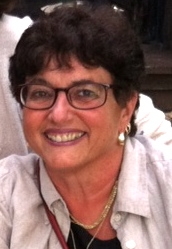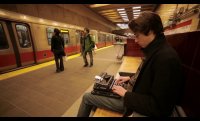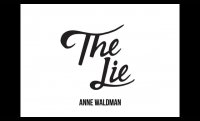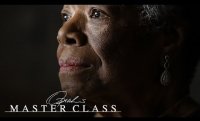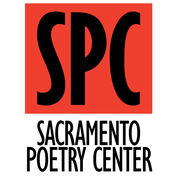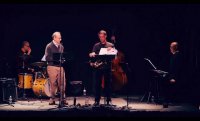Griffin Prize Shortlist Announced
The Griffin Trust for Excellence in Poetry announced the shortlist for its 2013 Griffin Poetry Prize on Tuesday. Two awards of $65,000 CAD (approximately $59,253) each are given annually for poetry collections published during the previous year, one by a poet living in Canada and another by a poet living internationally.

The international finalists include Rachel Boast for Pilgrim’s Flower (Picador), Brenda Hillman for Seasonal Works with Letters on Fire (Wesleyan University Press), Carl Phillips for Silverchest (Farrar, Straus and Giroux), and Mira Rosenthal for her translation from the Polish of Tomasz Rózycki’s Colonies (Zephyr Press). The Canadian finalists include Anne Carson for Red Doc> (Knopf), Sue Goyette for Ocean (Gaspereau Press), and Anne Michaels for Correspondences (Knopf).
The seven finalists will each receive $10,000 CAD (approximately $9,114) and will be invited to read on June 4 at the Royal Conservatory in Toronto. The winners, who will each receive $65,000 CAD (approximately $59,253), will be announced on June 5 at the Griffin Poetry Prize Awards ceremony.
 The 2014 judges, chosen by the Griffin Trust trustees, are Robert Bringhurst of Canada, Jo Shapcott of the United Kingdom, and C. D. Wright of the United States. They read 539 poetry collections, including 24 translations, from 40 countries.
The 2014 judges, chosen by the Griffin Trust trustees, are Robert Bringhurst of Canada, Jo Shapcott of the United Kingdom, and C. D. Wright of the United States. They read 539 poetry collections, including 24 translations, from 40 countries.
Based in Toronto, the Griffin Trust for Excellence in Poetry was founded in 2000 by chairman Scott Griffin and trustees Margaret Atwood, Robert Hass, Michael Ondaatje, Robin Robertson, and David Young. Carolyn Forché joined as a trustee in 2004.
Publishers may submit books for consideration by the annual deadline of December 31. Visit the Griffin Trust website for more information and complete guidelines.
Fady Joudah and Candian poet David W. McFadden won the 2013 Griffin Poetry Prizes. Joudah won for his translation from the Arabic of Palestinian poet Ghassan Zaqtan's Like a Straw Bird It follows Me (Yale University Press); McFadden won for his collection What's the Score (Mansfield Press).
Phillips: Dinty W. Moore; Carson: Peter Smith.





